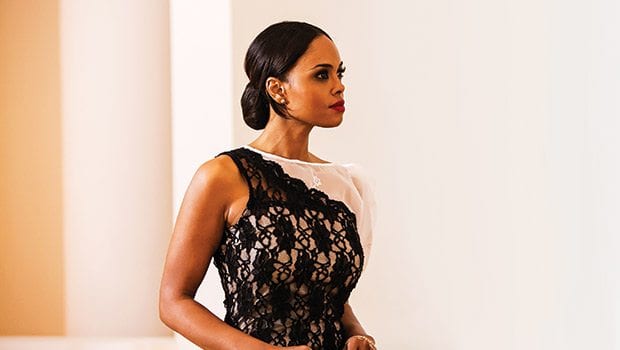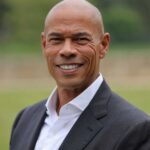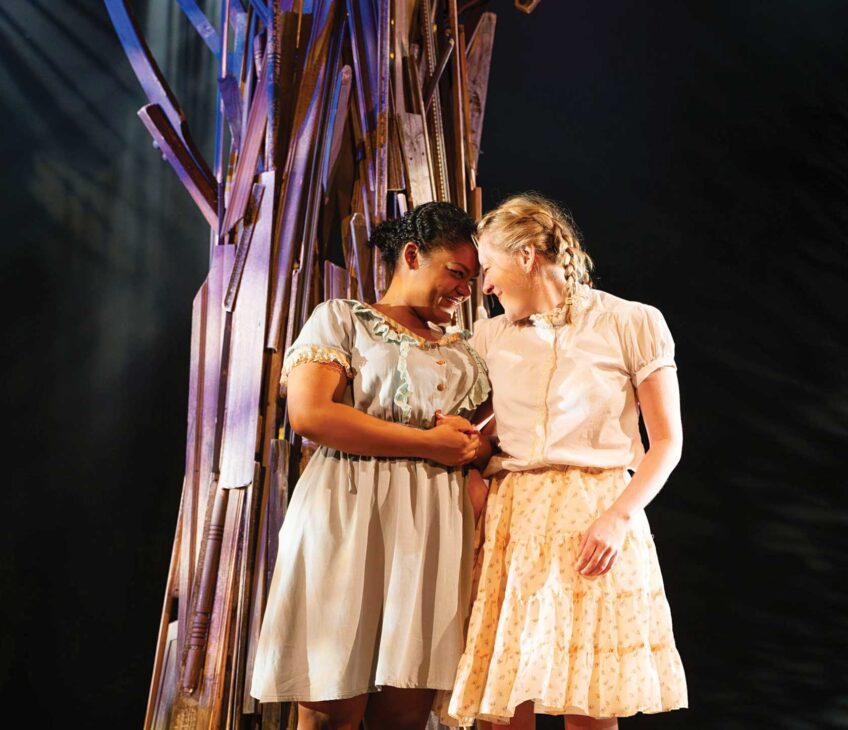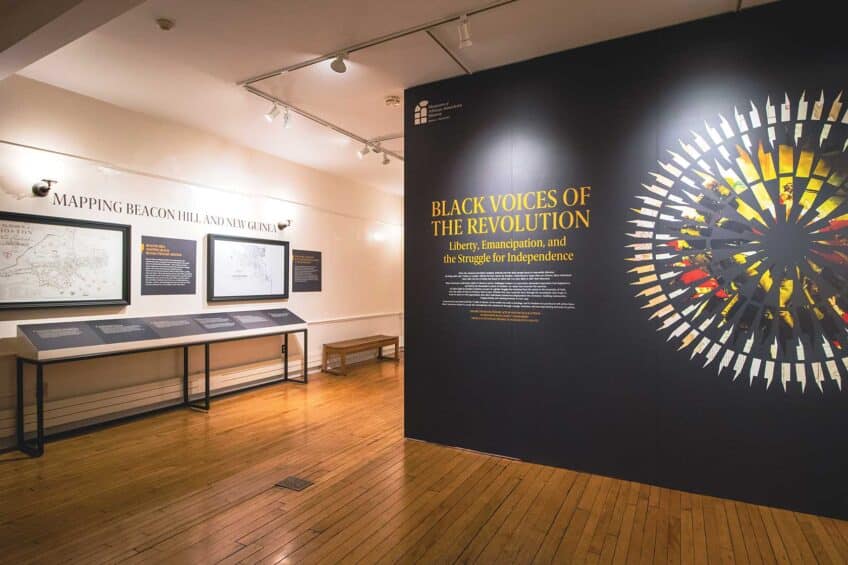
Named one of 2007’s ‘Breakout Stars’ by Entertainment Weekly, Sharon Leal has recently been seen on the big screen starring in Women Thou Art Loosed: On the 7th Day, as well as in Why Did I Get Married Too?, reprising her role of Diane that she originated in the highly successful original, Why Did I Get Married?
Prior to that, she starred opposite Samuel L. Jackson and Bernie Mac in the comedy Soul Men as well as in This Christmas, opposite Regina King and Mekhi Phifer. Her performance in the latter project won her an Asian Excellence Award for outstanding Film Actress.
Sharon received international attention in the blockbuster Dreamgirls, starring opposite Beyoncé Knowles and Jamie Foxx. She portrayed Michelle Morris, the singer who replaced Effie White (played by Academy Award-winner Jennifer Hudson) in the female trio, ‘The Dreams.’ In Dreamgirls, Sharon showcased her remarkable vocal skills and was heard on the popular movie soundtrack.
Earlier in her career, Sharon starred as a series regular on the TV series Boston Public as well as on the series Hellcats. Her other notable television credits include recurring roles on Grimm, Person of Interest, Private Practice and LAX. Her guest star roles include the shows Suits, Las Vegas and CSI: Miami.
Born in Tucson, Arizona and raised in Fresno, California, Leal began singing at an early age and eventually discovered her passion for acting while attending a performing arts high school. Her professional career began on stage in regional productions of Ain’t Misbehavin’, Into the Woods and Little Shop of Horrors.
Soon thereafter, she moved to New York and landed major roles on Broadway in Miss Saigon, Rent and Bright Lights Big City. While in New York, she staged cabarets and continued to hone her skills when she workshopped the original production of Stormy Weather at the Manhattan Theatre Club, in which she played the legendary Lena Horne.
Sharon continues to pursue her passion, music, and is currently working on a full-length album. Here, she talks about her starring role as Zoe Reynard in the screen adaptation of Zane’s erotic thriller, Addicted.
Kam Williams: What interested you in Addicted? Had you read the book?
Sharon Leal: No, I had never read the book. I remember seeing the script long before we made the film. It’d been floating around, and had scared every actress. I think that whenever something scares you, you feel challenged, and that sort of piques my interest. So, I tried to see if I could hop in there, attack the role, and try to get it done. They had that great cast of men with William Levy, Boris Kodjoe and Tyson [Beckford]. When I spoke to [producer] Paul Hall and [director] Billie Woodruff, we just dove in and had a great time. It’s a very specific genre, but it appeals to a population of women that really loved, supported and enjoyed the film. So, I’m happy I did it. It was a good experience
KW: When I went to see the film, the audience was 90 percent female. Why do you think that was the case?
SL: [Chuckles] It had way too many gorgeous men for that not to be the case.
KW: How did you prepare to play your character, Zoe Reynard?
SL: Whenever you step into a role, you want to get the back story, the psychology behind your character. Obviously, with Zoe, she was a woman very much in denial about things that had happened to her in the past as a child. I just researched addiction, in general, and the actual illness of sex addiction, in particular. Turns out, it’s not all that different from alcohol, drug or food addiction. They’re all very similar.
KW: How did you go about fleshing out your character from there?
SL: You work from the inside, out. Addicted’s a very titillating movie with tons of sex scenes. But my job was to focus on what motivated all that behavior: what Zoe was running away from and what dysfunction was triggering her, on a psychological level. That’s what I really spent my time researching in order to be able to emulate and give her a base.
KW: How was it reuniting with Tasha Smith again, one of your co-stars from Why Did I Get Married and Why Did I Get Married Too?
SL: It was great! It’s always wonderful when you get to work with one of your friends you love in real-life. I did meet Tasha on Why Did I Get Married, but we remained very close ever since. We shot all of our scenes together in the therapist’s office first. It was nice doing those scenes with someone I was comfortable with, since they were so intimate. We have a natural rapport that made it a little bit easier.
KW: You just premiered White Water, a made-for-TV movie, set in the South in 1963, about color-coded water fountains during the days of Jim Crow segregation. How would you describe your character Annie in that picture?
SL: She’s a single-mom, who’s estranged from her husband, a free-spirited musician played by Larenz Tate. While he runs off chasing his dream, she gets stuck at home raising their 7 year-old son and his cousin. She’s trying to keep her son safe and alive. What’s unique about this movie is that it has a whimsical quality due to its being told directly from the perspective of a 7 year-old. So, it has a Forest Gump, storybook quality about it, since all the observations are being made by a child’s brain. What attracted me to the project was how it approached a very serious subject from a fresh angle.
KW: The film reminded me of my own childhood when I was profoundly affected by my mother’s telling me I couldn’t go to this or that place I really, really wanted to visit after seeing it in TV commercials, because, “They don’t allow colored.”
SL: Yeah, that’s exactly it. For instance, this innocent child can’t understand why he had to go to the back of the bus. It really brings to light the absurdity of the situation.
KW: What is your earliest childhood memory?
SL: Being in the Philippines, which is where my mother’s from. My dad was in the U.S. Air Force. My most vivid childhood memory is running around barefoot in the jungle. I can remember the climate: the big trees, the water, the heat, the tropical fruits, and cutting down my own sugar cane at about 3 years of age, like a little jungle girl. You can imagine how freeing and how much fun that was for me as a child. It was a great way to begin my time on this planet. I was wild. I don’t remember ever having clothes on. I just remember being free to run around and explore this huge world. Those are some of my fondest childhood memories.
KW: How is climate change affecting the Philippines? It’s been ravaged by monster typhoons two years in a row.
SL: My family goes home to visit several times a year. Thankfully, they weren’t located where the last big storm hit, but it’s always scary and devastating. But my mother moved to the States at 19, but we do send money to relatives and we also have property there. So, obviously, we’re still very connected to the country. But my mom really loves America and misses it so much she always comes right back after a couple of weeks.
KW: What projects do you have on the horizon?
SL: In early April, I’ll be starting work on Recovery Road, a TV series for ABC Family Network. I’m happy that the show will be shooting in Los Angeles. So I won’t have to move anywhere. I feel like I hit the lottery. And I’m also finishing up work on my album.





